
- By Theme
-
Destinations
-
Indian Destinations
-
International Destinations
-
- Best Places to Visit
- Packages
- Search Agents
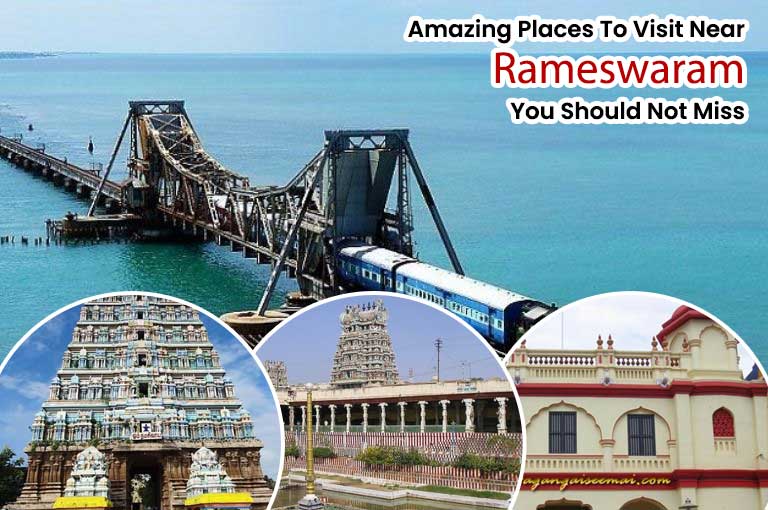
Rameswaram’s ethereal temples, windbrushed bridges and turquoise shallows offer a complete pilgrimage–cumbeach escape, yet the region truly comes alive when you venture beyond its reefringed shores. If you are charting your itinerary of places to visit near Rameswaram, you've landed at the right guide. From emerald hinterland towns to colonial seaside cities, the peninsula is a springboard to cultural treasures and nature hotspots. This article strings together the most sought after stops, the places to see around Rameswaram, along with practical tips to make your circuits seamless. We have filtered the best places to visit near rameshwaram for foodies, photographers, history lovers and spiritual seekers alike, so that you’re never short of inspiration. Whether you’re interested in architecture, wildlife, or simply wish to add some sunsplashed beaches to your plan, the handpicked routes below cover it all. Keep reading to uncover hidden gems, sensible travel hacks and the entire constellation of near rameshwaram tourist places.
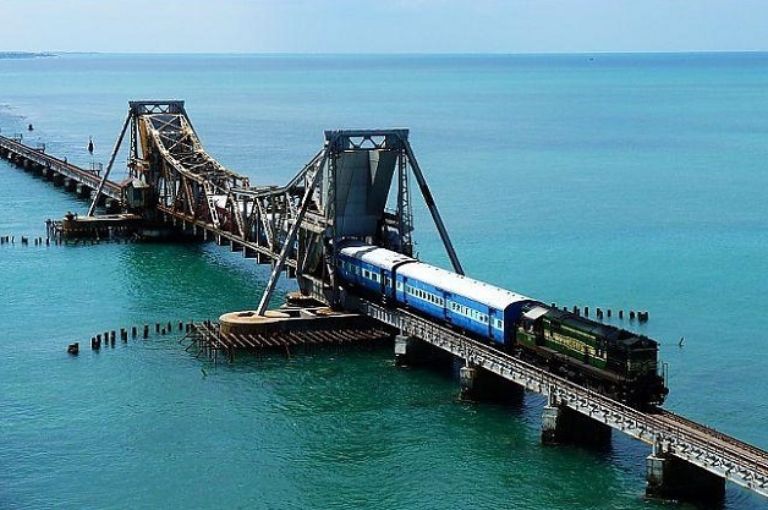
Once the seat of the Sethupathi rulers, Ramanathapuram is a heritagerich town whose quiet streets hide stories of trade, fortitude and devotion. When travellers tick off places to visit near Rameswaram, Ramanathapuram often headlines the list because of its magnificent Ramalinga Vilas Palace, oldworld markets and the wellpreserved Raja Rajeswari Amman Temple complex. The town sits amid salt pans and shimmering backwaters that echo with migratory bird calls in winter. Beyond history, the locale surprises visitors with vibrant handloom clusters and a thriving seafood scene dominated by crab curries and pearl spot fish fries. A stroll along the Vaigai river bank at dusk, when temple bells chime in sync with the muezzin’s call, paints an unforgettable cultural collage. Friendly locals, affordable homestays and excellent road connectivity from Rameswaram make Ramanathapuram a stressfree day trip or an overnight pause on a longer Tamil Nadu circuit.
November to February for pleasant weather and birdwatching
Frequent government and private buses (1.5hrs)
Taxis or selfdrive cars via NH87
Carry cash; ATMs can be scarce in village stretches.
Respect temple dress codes (cloth over shoulders, covered knees).
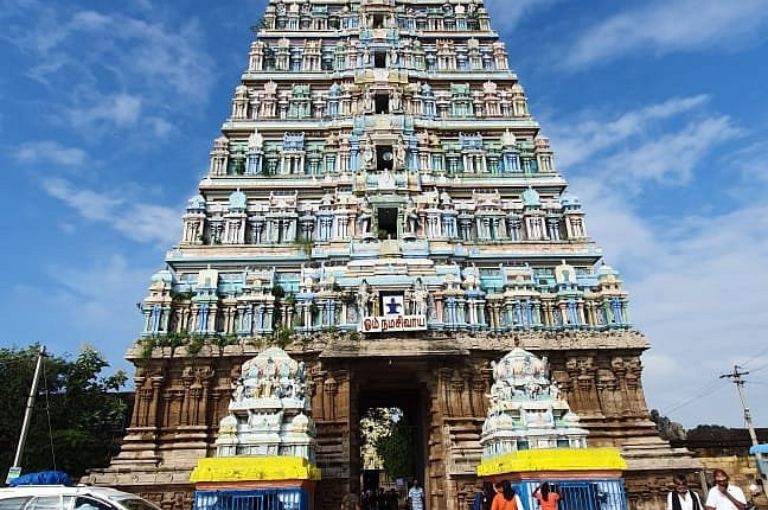
Uthirakosamangai, a sleepy coastal village, wakes up briskly at dawn when conches blow inside Mangalanatha Swamy Temple—one of the few shrines where Lord Shiva is worshipped in a rare emerald (maragatha) lingam form. Legend claims that Parvati herself revealed cosmic secrets (uthira kosa) here, lending the hamlet its poetic name. The 8foot Nataraja idol chiselled from lapistinged granite dazzles with gemstudded anklets during the Margazhi Thiruvathirai festival, drawing pilgrims from across South India. Beyond the spiritual draw, Uthirakosamangai’s coconutlined lagoons shelter traditional Kattumaram (catamaran) makers who still weave hulls from palmyra logs and coir rope. Afternoons are perfect for sampling jaggerysweet paniyaram at roadside shacks before slipping into serene backwater boat rides. Evenings melt into pinkgold horizons as fishermen haul in mackerel, offering visitors a tangible slice of coastal village life untouched by mass tourism.
Mangalanatha Swamy Temple with emerald Shiva lingam
Annual Arudhra Darshan festival dance procession
Traditional catamaran workshops
December–February and festival days (Dec–Jan)
Direct buses from Ramanathapuram; taxis from Rameswaram (2hrs)
Temple allows mobiles but no photography inside the sanctum.
Pack sunscreen; shade is sparse around the lagoons.
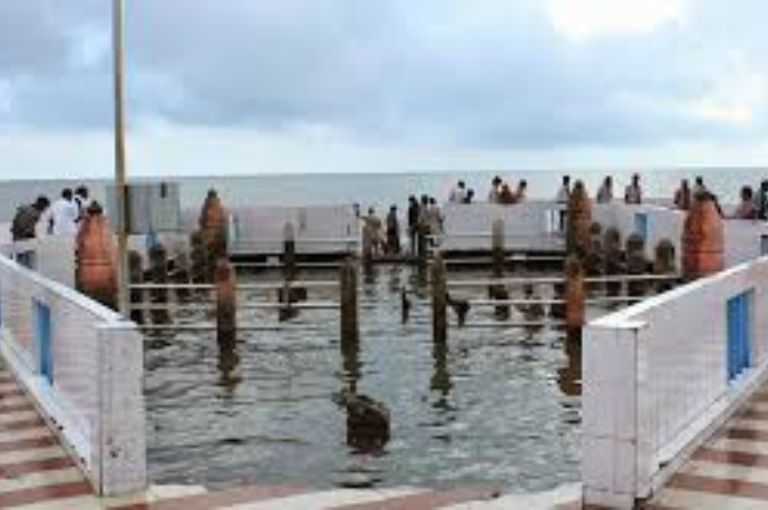
Devipattinam cradles mythology along the Bay of Bengal where, folklore says, Lord Rama pacified the seas by placing nine stones—symbolising the Navagrahas—before embarking on his bridgebuilding quest to Lanka. Today, waistdeep devotees still circumnavigate those very stones at the Navapashanam shrine, believing that a dip washes away planetary afflictions. As one of the important Rameswaram near tourist places, Devipattinam retains an oldworld rhythm: fishing boats painted in primary hues bob at anchor while spice sellers fan open their aromatic sacks along narrow lanes. A morning visit yields mesmerizing visuals of priests lighting camphor flames that glimmer against sky and sea alike. Beyond religious fervour, the hamlet opens gateways to ecorich mangrove channels, best explored aboard a paddled country craft, where grey herons preen and mudskippers dart over roots. Simple seaside eateries serve steaming bowls of meen kuzhambu (fish curry) that pair flawlessly with fluffy rice.
Key Highlights
July–March; early mornings for uncrowded rituals
Ariyaman Beach (18km)
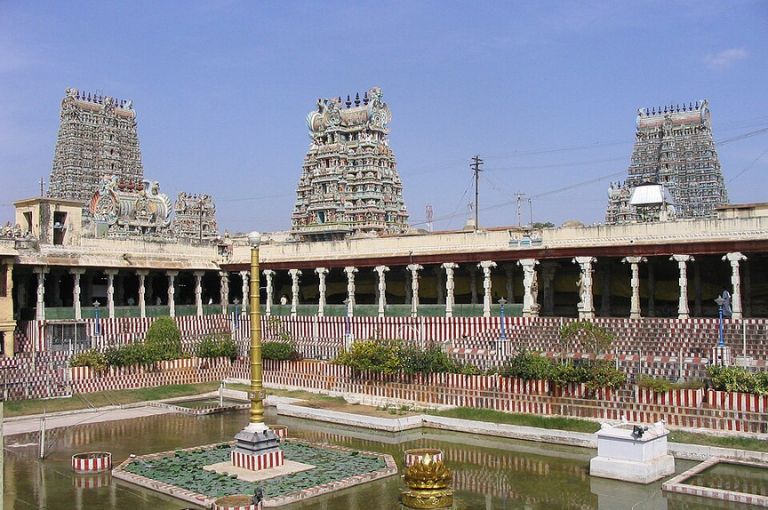
One of the most culturally charged places to visit near Rameswaram is Madurai, a city that has thrived continuously for over 2,500years. At its heart rises the labyrinthine Meenakshi Amman Temple, where soaring gopurams teem with vivid stucco gods telling epics in technicolour. Modern Madurai balances reverence with hustle: tailors stitch silk veshtis beside tech startups, while legendary restaurants dish out 4am ‘jigarthanda’ milkshakes to pilgrims waiting for the first temple bell. Wander through Pudhu Mandapam market for bronze lamps and jasmine garlands or spend an evening watching classical dance at Gandhi Museum’s openair theatre. The Vaigai Riverfront, lit up at night, showcases fountains and street eats that add urban sparkle to this ancient soul. With efficient rail links and expanding airport connectivity, Madurai is a rewarding stand-alone city break or a gateway to hill stations like Kodaikanal.
December–February for mild evenings; April (Chithirai festival) for pageantry
Alagar Kovil & Pazhamudircholai Hills (25km)
Dress modestly; temple staff enforce strict codes.
City sleeps late—expect restaurants to reopen only after 6pm.
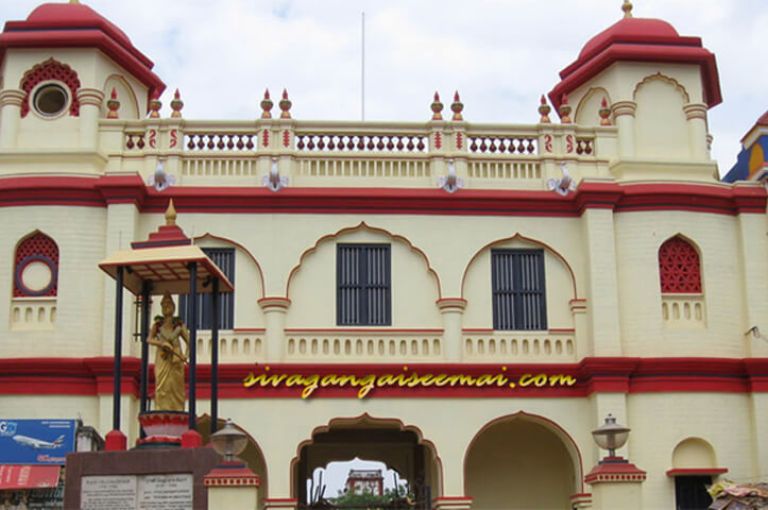
Sivaganga, affectionately called the "Little Chettinad," is a quiet district headquarters framed by palm groves and sugarcane fields. History lovers come searching for the echoes of the Maruthu Pandiyar brothers, freedom fighters who once ruled from here; their legacy lives on in Sivaganga Palace, a hybrid of Rajput domes and Dravidian courtyards. The surrounding tank, teeming with lotus blooms, runs dry postmonsoon, revealing stepped ghats that make photogenic vignettes. Local artisans excel in making kandangi cotton saris, dyed in earthy mud and woven on ancestral looms. A quick detour leads to the spooky yet fascinating Kalayarkoil Fort, rumoured to house hidden tunnels connecting to the palace. Sivaganga’s streetfood nights are all about Kuzhi paniyaram cooked on wood fires and served with three kinds of chutney—ginger, garlic and coconut. The town’s gentle pace and friendly homestays make it a restful cultural interlude between bigger cities.
December–February; July–August during Aadi Pooram festival
Shop sustainable handloom products
Attend a rural kolattam folk dance show
Pillayarpatti Karpaga Vinayagar Temple (18km)
Trains from Rameswaram terminate at Sivaganga Junction (2.5hrs)
Buses every 40minutes via Karaikudi
Carry mosquito repellent—tanks attract bugs at dusk.
Bargain politely in sari shops; prices are flexible.
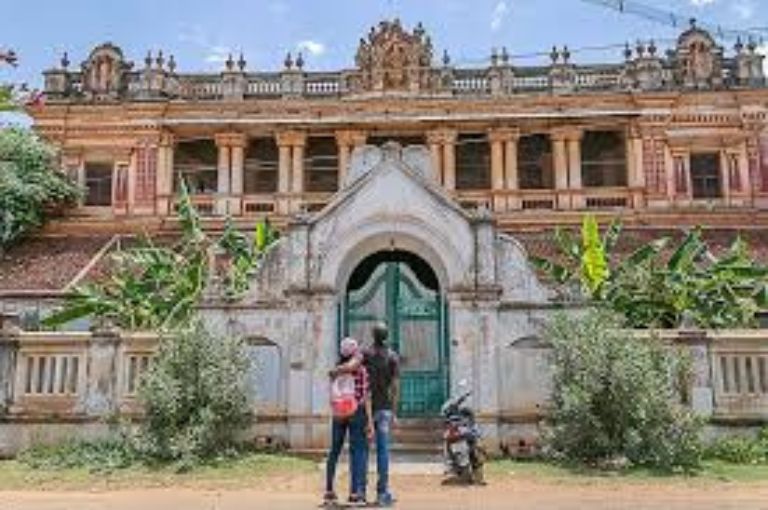
Cradled inside the Chettinad region, Karaikudi is where palatial mansions rub shoulders with fiery cuisine and antiqueladen boutiques. It easily ranks among the best places to visit near Rameshwaram for architecture buffs. Walk down Kottaiyur and Devakottai lanes to admire 19thcentury mansions built with Burmese teak, Belgian mirrors and stainedglass skylights. Many are now heritage homestays where you can taste Milagu paniyaram, Kola Urundai and the famed Chettinad chicken in royal dining halls. Beyond built heritage, the Athangudi tile units mesmerize with their handpressed cement mosaics—visitors can design their own tiles as souvenirs. The weekly Karaikudi Antique Market is a treasuretrove of Art Deco furniture and brassware at negotiable rates. Local guides also arrange bullockcart village tours and kolam drawing workshops for deeper cultural immersion.
October–March for cooler mornings
Kanadukathan (16km) heritage village
Thanjavur, the land of the mighty Cholas, radiates a golden aura of temple spires, bronze art and Carnatic strains. Dominating its skyline is the UNESCOlisted Brihadeeswarar Temple, where a monolithic 80tonne granite cupola crowns the sanctum—an engineering marvel that still begs explanation. As one of the most storied places to visit near Rameswaram, Thanjavur also delights art connoisseurs with its eponymous painting style that uses 22karat gold leaf and crushed semi precious stones to bring deities alive. The palace complex houses Saraswathi Mahal Library, reputedly Asia’s oldest, preserving over 49,000 palmleaf manuscripts. After a whirlwind of culture, recharge with a plate of fluffy ‘Thanjavur idli’ topped with ghee. Evenings are best spent watching Bharatanatyam recitals at Sangeetha Mahal or strolling along paddylined canals that glow emerald under postmonsoon skies.
November–March; April for Chithirai Festival chariot procession
Darasuram Airavatesvara Temple (36km)
Gardenfringed boulevards, scholarly institutions and a fortress perched atop a rock are hallmarks of Tiruchirappalli—one of the liveliest Rameswaram near tourist places. Ascend 434 stonecut steps to reach Rockfort Temple and watch the Kaveri River snake through fertile plains at sunset; the panorama alone justifies the detour. Down below, the 17thcentury Sri Ranganathaswamy Temple at Srirangam dazzles with 21 sculpted gopurams, each narrating mythological tales in sprawling basrelief. Food enthusiasts can’t leave without tasting ‘Trichy mattai bajji’ and Jigarthanda spinoffs that now rival Madurai’s original. The city’s location on the Grand Southern Trunk Road makes it a convenient transit hub linking coastal Tamil Nadu with hill country. Civil architecture fans should visit the Roman Catholic St. Joseph’s College campus where Nobel laureate C.V. Raman once studied, while shoppers flock to Gandhi Market for inexpensive brass idols and betel leaves.
December–March for tolerable midday heat
Puliancholai Waterfalls (72km) at the foothills of Kolli Hills
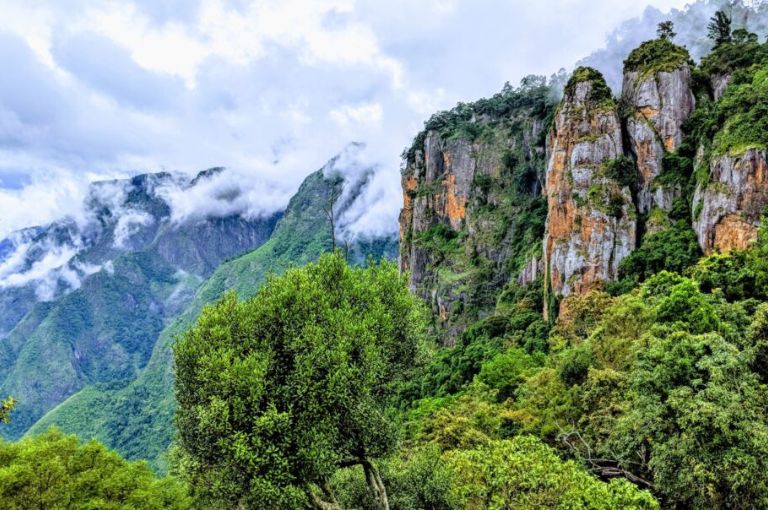
Blanketed by rolling grasslands, mistladen ravines and jewelled shola forests, Kodaikanal is the favourite hill retreat in the Palani range and another refreshing place to visit near Rameswaram. At 2,133metres, ‘Kodai’ doles out cool 18°C afternoons even in peak summer, making boating on its starshaped lake a perennial draw. Early risers trek to Pillar Rocks Viewpoint where granite towers soar 120metres above velvety forests, disappearing and reappearing in clouds. The town’s botanical curiosity—the kurinji flower—blooms once every 12years, tinting hillsides purple, while its homemade chocolate shops operate yearround. Adventure lovers can bike the 5km Coaker’s Walk ridge or kayak across Berijam Lake, a protected reservoir inside a reserve forest teeming with bison and Malabar giant squirrels. Cosy colonial cottages, roaring fireplaces and farmtotable eateries stamp Kodaikanal as an evergreen romantic escape.
April–June for pleasant summers; December for foggy charm
Palani Murugan Temple (70km)
Carry layered clothing; temperatures dip sharply at dusk.
Mobile data weak in forests—download maps offline.
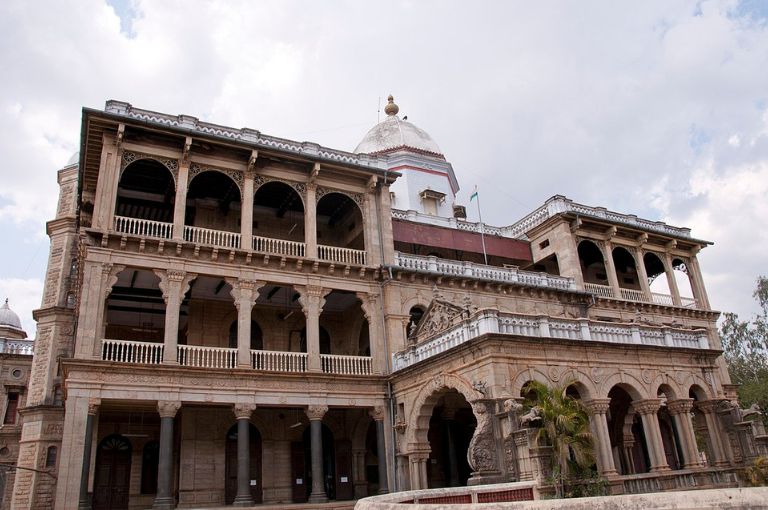
Pudukkottai is a time capsule of South Indian dynasties—from early Pandyas to Nayaks—yet it remains off most tourist radars. The district museum parades Bronze Age urn burials beside Chola bronzes and colonial coins, offering a bitesized primer in Tamil history. An hour’s drive away, the 8thcentury Aivar Malai Jain Caves preserve stone beds and intricate basreliefs of Tirthankaras, ideal for archaeology enthusiasts. Local villages are famed for terracotta horse figurines that stand sentinel outside Ayyanar shrines, some towering five metres high. Come monsoon, paddy fields around Pudukkottai turn into emerald squares, punctuated by village fairs where folk dancers whirl to thavil drums. The town’s relaxed vibe is perfect for slow travel—hire a bicycle, sample milletbased snacks and strike up conversations with artisans who happily demonstrate their craft for curious guests.
July–February for green countryside
Thirumayam Fort & Rockcut Temple (20km)
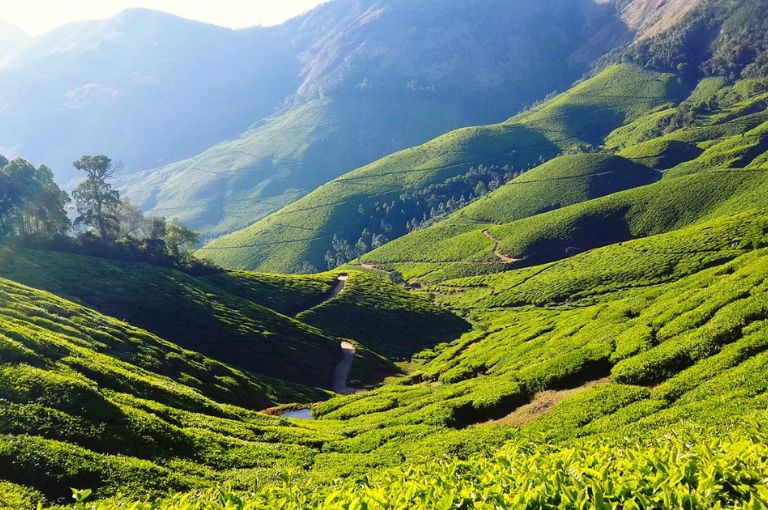
Fringed by the blue folds of the Western Ghats, Theni is Tamil Nadu’s fruitbowl—orchards here truck tons of bananas, grapes and mangoes across India. Misty coffee estates wrap the foothills, while orange marigold farms paint dramatic swathes of colour in bloom season. Theni’s weekly vegetable shandy is an explosion of aromas where saffronrobed monks haggle beside filmstar chefs sourcing produce. A 30minute climb up Meghamalai (‘High Wavy Mountains’) reveals tea gardens laced with silvery streams and, if you’re lucky, sightings of Nilgiri tahrs. Down in the plains, Suruli Falls thunder 150feet through dense teak groves, offering natural plunge pools perfect for summer afternoons. The district’s border location also serves as a convenient gateway into Thekkady’s Periyar Tiger Reserve in Kerala, making Theni a strategic pause on a longer wildlife trail.
September–January for postmonsoon greenery
Thekkady–Periyar Tiger Reserve (55km)
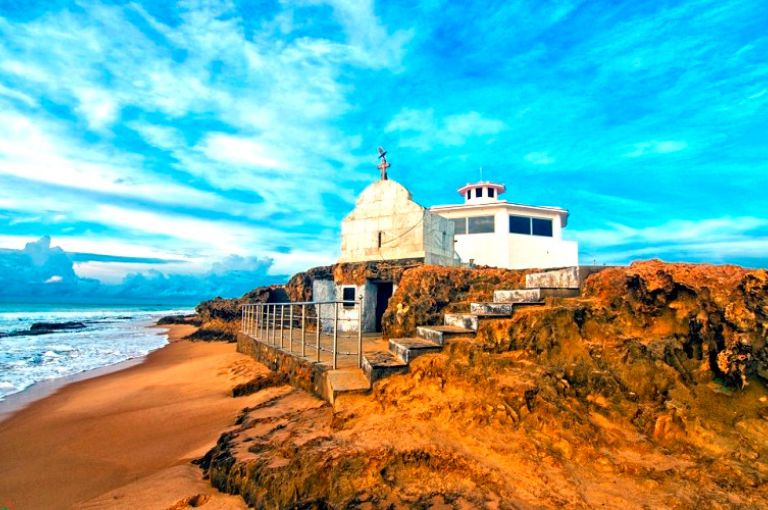
Tuticorin, officially Thoothukudi, pairs a bustling port with breezy seafront promenades and pearldiving folklore stretching back 2,000years. Its turquoise harbour once launched sailing vessels loaded with pearls, spices and Christian missionaries, legacy of which lingers in twintowered Our Lady of Snows Basilica. Visitors soak up colonial nostalgia on Beach Road where brightpainted fishermen’s houses stand cheekbyjowl with Art Deco administrative blocks. Offshore, the biodiverse Gulf of Mannar Marine National Park invites glassbottom boat rides over coral gardens alive with clownfish and sea urchins. Foodies fall for Tuticorin macaroons—made not with coconut but cashews and egg whites—paired with strong ‘degree’ filter coffee. Sunset over Hare Island frames silhouettes of anchored cargo ships against fiery skies, a photographer’s dream. Nightlife is lowkey but safe, centred around leisurely seafood dinners featuring spicy crab masala and fried parotta rolls.
November–March; avoid peak summer heat
Famous Tourist Spots Nearby
Kalakkad Mundanthurai Tiger Reserve (65km)
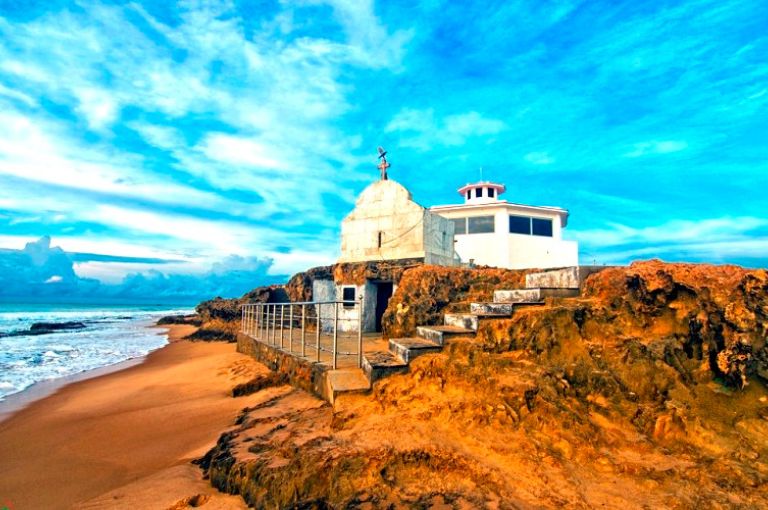
At the confluence of the Indian Ocean, Bay of Bengal and Arabian Sea lies Kanyakumari—India’s Land’s End where waves from three directions converge in a frothy embrace. As sunrise streaks saffron across the horizon, temples reverberate with conch shells creating a spiritual ambience unmatched elsewhere. Vivekananda Rock Memorial and Thiruvalluvar Statue, accessed by ferry, salute philosophers who championed humanity and peace. The town also houses the ornate Kumari Amman Temple dedicated to the virgin goddess who, legend says, waits eternally for Shiva’s hand. Trekkers can head inland to Vattakottai Fort and Padmanabhapuram Palace for Dutchera history and Keralastyle architecture. Referred to by many travellers when mapping places around Rameshwaram, Kanyakumari offers dramatic skies punctuated by cottoncandy clouds, making it a photographer’s paradise. Souvenir stalls brim with colourful sand bottles, seashell trinkets and aromatic palm jaggery, ensuring you carry a piece of the cape back home.
October–March for calm seas; April fullmoon for ‘Chitra Pournami’ moonrisesunset alignment
Vattakottai Seaside Fort (7km)
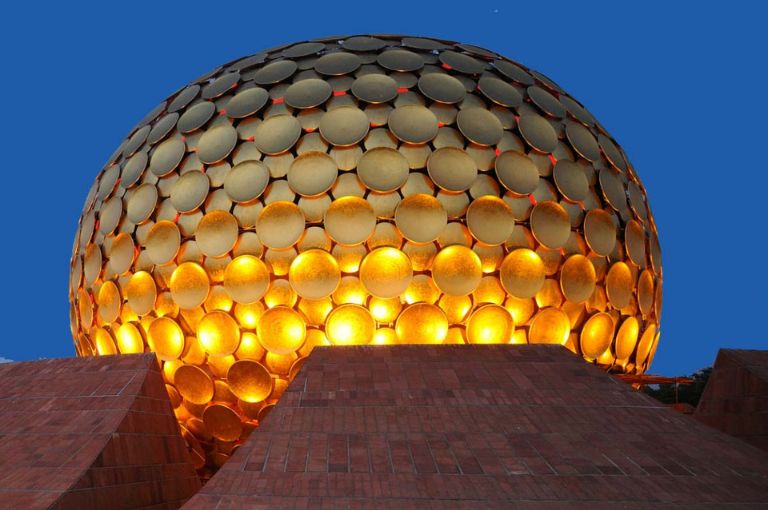
Formerly ‘Pondicherry,’ this French Riviera of the East charms visitors with mustardyellow villas, boulangeries wafting butter aromas and bougainvillaea climbing over street signs that still read ‘Rue’. Serenity Beach serves as a surfer’s classroom at dawn, while White Town’s cobbled lanes invite lazy cycle tours under mossdraped street lamps. The Sri Aurobindo Ashram lends spiritual depth, its silent meditation hall contrasting with bustling flea markets selling silver trinkets and essential oils. A day trip to Auroville’s futuristic Matrimandir dome reinforces Puducherry’s ethos of global harmony. Sunset boat rides on Chunnambar Backwater offer mirrorstill reflections of coconut fronds, perfect for romantics. Nightlife hums softly with live jazz and classic rock at heritage bars housed in colonial mansions, making this coastal union territory equally appealing to culture aficionados and caféhopping millennials.
November–February for mild sea breeze
Bharathi Park & Government Museum
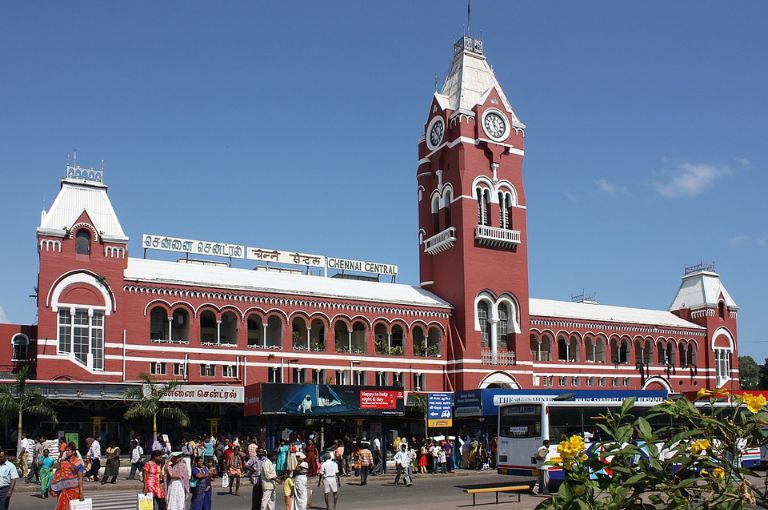
Tamil Nadu’s capital, Chennai, blends classic Carnatic notes with the thrum of startup culture and is the farthest on our list of places to visit near Rameswaram. On arrival, the 13km Marina Beach greets you with saltsprayed breezes, volleyball courts and bhaji stalls sizzling chillifritters. A heritage walk through George Town reveals IndoSaracenic landmarks such as Madras High Court and Senate House, while Kapaleeshwarar Temple in Mylapore hums with devotional music at dawn. Art lovers can browse contemporary galleries in leafy Alwarpet before watching a dance recital at Kalakshetra. Modern Chennai doesn’t shy away from indulgence—its craftbrew pubs, rooftop lounges and artisanal coffee roasters rival any metro. Shopping ranges from silk sarees at T.Nagar to bespoke leather goods in Periamet. As a grand finale to your southern expedition, this metropolis lets you tie up every loose thread, embodying the diversity that makes Rameshwaram nearby places to visit truly unforgettable.
November–February; December for the Margazhi music season
Mahabalipuram UNESCO shore temples (60km)
The areas around Rameshwaram offer more than just tourist spots – they bring together a mix of culture, food, and beautiful views. As you explore these places near Rameshwaram, you’ll go from coral islands to coconut-filled villages, from grand temples to peaceful hills. Each place has its own special story to tell. Feel free to bookmark this list of the best places to visit near Rameshwaram and share it with your travel buddies. It’s made to help you plan easily and enjoy every moment. You can also check out a Rameshwaram tour package to make your trip more comfortable and well-organized. No matter where you go next, Tamil Nadu is sure to welcome you with warmth, colour, and exciting experiences.